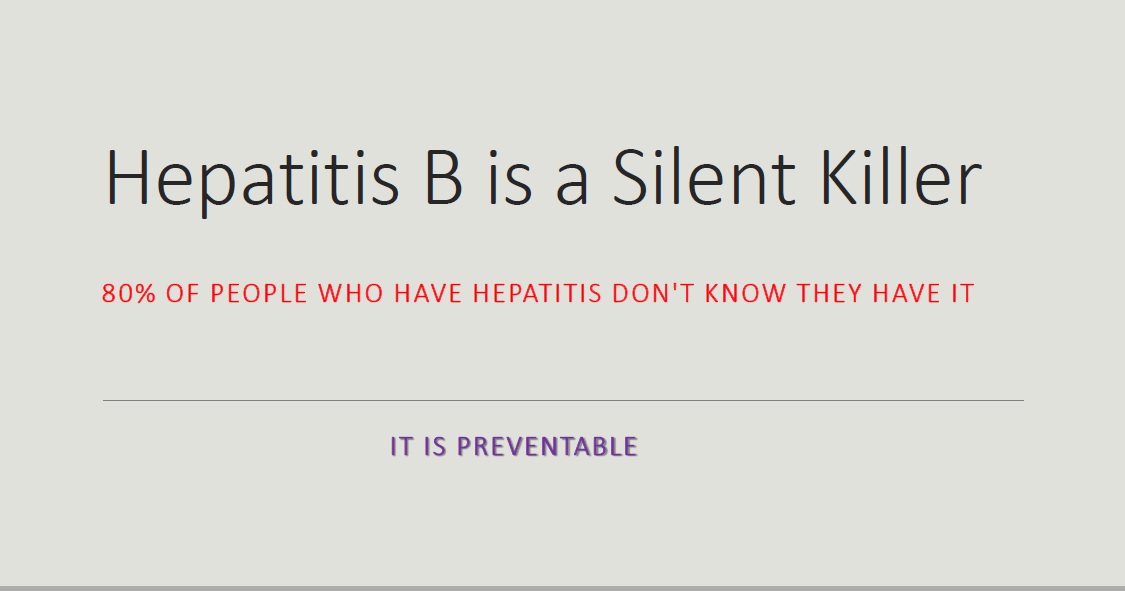
Hepatitis B is one of the top killer diseases in the world today. There are over 750000 deaths annually that are attributed to Hepatitis B. Several risk factors are said to be responsible for the high prevalence of the disease. In order to protect yourself and family from Hepatitis B, you need to know the causes of the disease and how it can be prevented or treated.

Hepatitis is an inflammation of the liver as a result of infectious agents (especially viruses), toxins, herbs, alcohol and so on. Specifically, hepatitis B virus (HBV) is the cause of hepatitis B. Some of the other common viruses that cause hepatitis are Hepatitis A, C, D and E. It's worthy of note that this dreaded infection is mainly transmitted through body fluids such as blood, vaginal secretions and semen.
Hepatitis B infection is a global healthcare problem with particularly high prevalence in developing countries viz sub-Saharan Africa and South-east/Central Asia. Statistically, about 350-400 million individuals worldwide suffer from chronic hepatitis B virus infection which is a dominant cause of cirrhosis and hepatocellular carcinoma (HCC). The risk factors of Hepatitis B include unprotected sexual intercourse (especially at an early age), intravenous drug abuse, unsafe blood transfusion, homosexuality and perinatal transmission from an infected mother to her baby. Information is power, hence it is pertinent to shed some light on certain cogent facts everybody needs to know about Hepatitis B Virus infection:
Untreated Hepatitis B Virus infection may progress to cirrhosis and/or liver cancer
This is especially true for infants who contract this virus from their infected mothers. Studies have shown that 90% of such infants eventually progress to chronic (long-term) HBV infection. However, older children and adults have about 25-50% and 5% risk, respectively of developing chronic hepatitis B infection following the acute (initial) infection. Moreover, many of those with chronic HBV infection are asymptomatic and remain chronic carriers of the virus mostly looking apparently healthy but capable of transmitting it to others. In the less fortunate ones, however, chronic infection ultimately gives way to cirrhosis and hepatocellular carcinoma (liver cancer) with much worse prognosis.
Most people with HBV show no symptoms at the initial stage
The majority of people with HBV are initially asymptomatic as the disease often takes up to 1-6 months to manifest symptoms. Such symptoms range from non-specific ones like general malaise, low-grade fever, nausea/vomiting, loss of appetite, body aches to more suggestive symptoms like passage of dark-coloured urine, jaundice (yellowness of the eyes and sclera), right upper abdominal pain as well as body itching. Sadly, those who have deteriorated into cirrhosis, hepatic encephalopathy or liver cancer may come down with such complications as abdominal swelling (ascites), gastrointestinal variceal bleeding, weight loss, confusion, coma or sometimes death.
Hepatitis B Virus infection is largely preventable
The good news about HBV infection is that it is highly preventable, thanks to the advent of the Hepatitis B vaccine which arguably offers significant protection from the virus in about 95% of people who received the vaccine appropriately. In recognition of this fact, the World Health Organisation (WHO) recommends at least 3 doses of this vaccine. Accordingly, the Expanded Programme on Immunization in Nigeria facilitates the administration of the vaccine to all newborns at birth, 6 weeks and 14 weeks to make up three completed doses. This, in no small measure helps to maximize the benefits of immunization and forestall the future occurrence of this lethal condition in children who received the vaccine at birth.
Thorough screening of blood and blood products
In the developing countries, transfusion with unsafe blood remains a common means of transmission of Hepatitis B virus. Hence, there is the need for relentless efforts geared towards upgrading existing health facilities in order to facilitate thorough screening of blood and blood products for Human Immunodeficiency Virus and hepatitis. This will go a long way in stemming the tides of the blood-borne transmission of hepatitis B virus in third-world countries.
Hepatitis B Virus is more infectious than HIV/AIDS
Although Human Immunodeficiency Virus (HIV) is widely believed to be the most infectious virus, research has shown that hepatitis B virus is 10 times more infectious than Human Immunodeficiency Virus. In addition, hepatitis B virus is resistant to extremes of temperature and humidity to the extent that it retains its capacity to infect unimmunized individuals even after 7 days outside the host. The implication of this for health workers is that they need to take extra precautions to avoid infection with this highly infectious yet preventable virus.
No comments:
Post a Comment